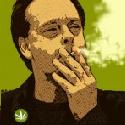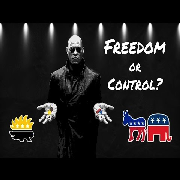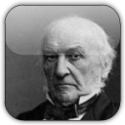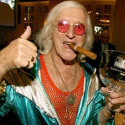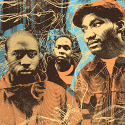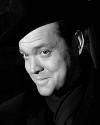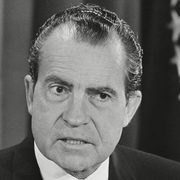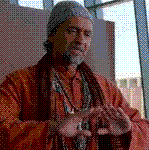|
You know what I liked about LF? The book thread. Let's have another one. I'm not nearly as well-read as a lot of LF regulars, so the best I can do is scavenge the previous book thread and try to keep this one tidy. Here is a suggested reading list McCaine (later updated by Dante) put forward for introductory purposes. I'm going to try to keep my editorializing to a minimum, but I have underlined books that I feel were held in particularly high esteem in the previous threads. If you think that I am missing something (very likely) please tell me and I will probably add it to the list. Economic history
Economic theory
Environment/Agriculture
Feminism/Gender Theory
History
Marx & Engels
Marxism
Media Analysis
Soviet history
Some new categories: Testing the Waters of the Left Sea If you find the idea of far-left literature daunting, you might want to try these books written from non-revolutionary, but still left-leaning perspective.
Favorite Fiction
Memoirs/Biographies
Cultural Studies/Literary Theory
(Post)Colonial Studies and Critical Race Studies
Prison Studies HidingfromGoro prepared a nice reading list. Here it is. HidingFromGoro posted:Capitalist Punishment: Prison Privatization and Human Rights Link to original thread: http://forums.somethingawful.com/showthread.php?threadid=3342159 McCaine's Marxist Theory Reading List (courtesy of Charlie Mopps) part 1 part 2 TheOtherContraGuy fucked around with this message at 22:56 on Jul 6, 2011 |
|
|
|

|
| # ? Apr 23, 2024 22:34 |
|
quote:Ha-Joon Chang, Bad Samaritans and Kicking Away the ladder (Refutes neoliberal economic development theory entirely, excellent reads) Can't pimp Ha-Joon Chang enough. I've been able to debate free trade advocates with very precise examples of the history of 1st world vs. 3rd world development. It's actually amazing how so many people, for example, think Japan became a rich nation via free trade policies when they became wealthy with a very heavy handed industrial policy via government picking winners and losers and restricting trade and this was something happened not too long ago.
|
|
|
|
TheOtherContraGuy posted:William Blum, Killing Hope: U. S. Military and CIA Interventions Since World War II
|
|
|
|
Feel free to post and discuss as much leftist literature as you want, but we're not going to limit it to that.
|
|
|
|
I am really glad that this thread is back in a way. One of the best books I read from the last thread was The Black Jacobins by C.L.R. James. It is an amazing book, check it out. It basicaly is a history of the 1791-1804 Haitian revolution, told from a marxist perspective. Check it out.
|
|
|
|
Xandu posted:Feel free to post and discuss as much leftist literature as you want, but we're not going to limit it to that. I can't stop anyone from posting in this thread. However, I hope you don't expect me to edit the reading list to be more accommodating to non-leftists.
|
|
|
|
At the moment i'm reading Comrade or Brother? A History of the British Labour Movement by Mary Davis and it's really quite good, especially for someone who doesn't have that much knowledge of the british labour movement. Really good at explaining the schisms between the radical syndicalist/socialist and reformist currents, as well as the origins of the labour party. It focuses on the role of women within both the labour movement and the labour force themselves, which is good but very depressing at times. An example being when the first equal pay resolution at the 1888 TUC was moved, it was not done through a desire for womens equality. Instead it was done, as Henry Broadhurst put it, because it was hoped that women would price themselves out of the labour market, thereby ceasing "competition for livelihood against the great and strong men of the world".
|
|
|
|
TheOtherContraGuy posted:I can't stop anyone from posting in this thread. Nope, just wanted to make it clear.
|
|
|
|
moana posted:This was a really fascinating book, thanks for this list. As a more accessible read, I would add Lies My Teacher Told Me. I know it's not on the same academic level as most of these, but I found it incredibly fun to read and insightful as well. I made a new section focused on "more accessible" reading just to put that one (and a few others) in the op. 
|
|
|
|
Thanks, that's awesome! I haven't read Blood Meridian, but ordered it from the library just now. My favorite fiction would be Dalton Trumbo, Johnny Got His Gun. Blew my mind when I first came across it in college and gets better with each read. Also maybe J.M. Coetzee, Foe?
|
|
|
|
moana posted:Thanks, that's awesome! I haven't read Blood Meridian, but ordered it from the library just now. My favorite fiction would be Dalton Trumbo, Johnny Got His Gun. Blew my mind when I first came across it in college and gets better with each read. Also maybe J.M. Coetzee, Foe? Blood Meridian is a pretty good book, and the thread on it in the book forum isnt too bad. edit http://forums.somethingawful.com/showthread.php?threadid=3139423 link to the thread
|
|
|
|
TheOtherContraGuy posted:ACTIVE READING GROUP LINKS: I'm currently halfway through My Life with the Taliban by Mullah Abdul Salam Zaeef, former mujahid, former ambassador to Pakistan, former Guantanamo inmate. I'm working through that last part, and nothing comes to mind so much as Bartolome de Las Casas' Destruction of the Indies and Guaman Poma's First New Chronicle. Psychotically depressed prisoners, prisoners wasting away in solitary confinement, prisoners left naked in the snow, a centennarian prisoner beaten down by guards, oh yeah. His account of Taliban rule is apologetic and he portrays it as much more independent of Pakistan and ISI than usually assumed. Before that I read Thomas Frank's The Wrecking Crew and Naomi Klein's The Shock Doctrine. That was a good accidental combination because there is substantial overlap between them; Frank describes the political machinery and ideology of extreme capitalism while Klein describes its effects on the world. Gazpacho fucked around with this message at 06:18 on Jun 3, 2011 |
|
|
|
I agree with xandu, can you please add the following book to the op: Culture Warrior, by Bill O'Reilly It's a very enlightening read that clearly and devastatingly examines the dominant cultural dogma(of our time) of secular progressivism. It's a pretty accessible read, at least for those of us that are not indoctrinated into whatever lf flavor of Stalinism is en vogue right now (USER WAS PUT ON PROBATION FOR THIS POST) (USER WAS BANNED FOR THIS POST)
|
|
|
|
Gazpacho posted:
The guys who helped him write this book, Alex Strick van Linschoten and Felix Kuehn, have a new book coming out this fall called An Enemy We Created. It sets out to disprove the myth that the Taliban is the same as al Qaeda and goes into its history and the links between the two groups. The basic point of the book, which is talked about in this paper they wrote, is that the United States needs to realize who the real enemy is and negotiate with the Taliban to exit Afghanistan. Based on their prior analyses, I'd recommend getting it when it comes out.
|
|
|
|
Stites is really good, and "Serfdom, Society and the Arts" is useful to give a good perfective on class structures within Imperial Russia. Really, though all of his books are good. If your interest in roots of the SR movement and the beginnings of Russian socialism - Martin Malia's "Alexander Herzen and the Birth of Russian Socialism, 1812-1855" is interesting and gives you some background what was happening in the background what was happening in Russian political thought during the 1830s-1850s. Understanding Tsarist social and political history should be a requirement for understanding Soviet history, too bad American academia is loving ruined by Sovietology. Ardennes fucked around with this message at 06:22 on Jun 3, 2011 |
|
|
|
If this isn't limited to modern history, I recently read A Distant Mirror which is about medieval history, specifically the 14th century, and thought it was pretty good. It deals with the horrifying calamities that visited Europe during that century but also goes into a lot of detail about medieval society itself. It doesn't have any Marxism in it, so I don't know if that's in opposition to the theme you've got going or not.
|
|
|
|
I feel like The Society of the Spectacle by Guy Debord should be up there. I don't know if you wan't to put it under Marxism or give it it's own category (cultural studies maybe). Also Zizek's First as Tragedy Then as Farce is a worthwhile read. Edit: Franz Fanon's The Wretched of the Earth is a classic anti-colonial work and all around beautiful book which NEEDS to be up there. 1491 by Charles C Mann, while not leftest per se, is a wonderful light history read which really emphasizes the agency of Native Americans and highlights their technological achievements and sophisticated political systems. It really challenges the "noble-savage" myths. It even makes a really plausible case that various native groups were responsible for major ecological changes in the new world. Babylon the Bright fucked around with this message at 07:11 on Jun 3, 2011 |
|
|
|
I would recommend Eric Hobsbawm's histories of the long 19th century for those interested in it. I read Age of Revolution and Age of Capital. His writing style is dense but interesting.
|
|
|
|
Babylon the Bright posted:Also Zizek's First as Tragedy Then as Farce is a worthwhile read. Stench Of Profit fucked around with this message at 07:33 on Jun 3, 2011 |
|
|
|
Currently I'm reading A People's History of the United States by Howard Zinn. I bought it because I saw a thread for it here a while back.
|
|
|
|
Quasimango posted:I would recommend Eric Hobsbawm's histories of the long 19th century for those interested in it. I read Age of Revolution and Age of Capital. His writing style is dense but interesting. Seconding this, as well as the later Age of Extremes. I recently reread the original trilogy and I really don't think there is a better general history of the period around, regardless of your level of background knowledge.
|
|
|
|
  Not enough attention is usually paid to Africa so I thought I'd recommend Africa's World War (history) by G�rard Prunier which is basically a recently published standard history of the Rwandan genocide and the huge central African conflict that followed. And then How Europe Underdeveloped Africa (history/economic history) by Walter Rodney to put the recent events into a perspective and to look at some of the root causes of what's happened to that continent. Rodney later got assassinated by the government of Guyana by the way, IIRC.
|
|
|
|
I'm surprised that Eduardo Galeano hasn't been mentioned yet. His Open Veins of Latin America is an absolute classic of Latin American history and serves as a far more readable and darkly humorous counter weight to dry and miserable tomes like Late Victorian Holocausts and Beyond Chutzpah. I haven't read his other famous work yet, the Memory of Fire trilogy, but I've heard nothing but good things about it and it can't get here soon enough.
|
|
|
|
This might sound strange, but I've been writing an in depth article on the legacy of Kenneth Pomeranz's Great Divergence, and would you consider taking it off the list? Despite its revisionist impact, it is absolutely the most boring, badly written, unfocused book I have ever read (and boy do my professors agree). He lifts his comparative methodology from Roy Bin Wong's 1997 book China Transformed, which is much more enjoyable. This article captures most of the argument of the Great Divergence and its impact (http://www.history.ac.uk/reviews/review/1008), so read that instead if you want to get the gist of it. One of the reasons I'm making this unusual request is that the book contains absolutely no narrative, no characters, and not even a single picture or graph despite being focused almost entirely on statistics - which are dealt with using primary school level arithmetic. It's really, really horrible and it's argument can be distilled into 3 pages, so no reason to read 300 to get it. I'll add "Everything was forever until it was no more" by Alexei Yurchak about the last generation that lived in the Soviet Union. It includes a fabulous historiographical overview at the start, great chapters on the use of humor and irony in soviet culture, his own past as a band manager, and many amazing descriptions of how the dissidents generally aroused only annoyance instead of subversion amongst the population at large. The first chapter can be tough because of its theoretical bent, but the rest of the book are wonderful interviews and stories.
|
|
|
|
I'd recommend Griftopia by Matt Taibbi for an explanation of the recent financial crisis and Specters of Marx by Jacques Derrida for a deconstructionist view of Marx's legacy as well as a rebuttal to Fukuyama's proclamation of 'the end of ideology'.
|
|
|
|
moana posted:Thanks, that's awesome! I haven't read Blood Meridian, but ordered it from the library just now. My favorite fiction would be Dalton Trumbo, Johnny Got His Gun. Blew my mind when I first came across it in college and gets better with each read. Also maybe J.M. Coetzee, Foe? Foe is an incredible book, and I'd love to discuss it. Although I'd need to re-read it first and that's probably a book barn thing. My copy of 'Tree of Codes' by Jonathon Safran Foer came today. I almost hate how much I love JSF, because I completely agree with all the criticisms of his 'gimmicks' and prose style, and yet it totally works on me. Going to have fun very carefully turning the pages of that book and slipping pieces of paper underneath the pages (but I should finish The Street of Crocodiles first, I'll probably do so today). I have a stack of books to work through this summer, the ones most relevant to this thread would be 'In the Shadow of the War' by Michael S. Sherry, Hunter S. Thompson's Fear and Loathing on the Campaign Trail, Orwell's The Road to Wigan Pier, Ed Husein's The Islamist, Capitalism and Modern Social Theory by Anthony Giddens and Invention of the White Race by Theodore W. Allen. I'm also dipping in and out of Peter Marshall's Demanding the Impossible: A History of Anarchism, which is a really good book but the format of it (looking at a country/period of history then a synppsis of the thinkers in that grouping) lends itself better to brief dips than an extended read. Oh, and for some reason a charity shop near me had The Meaning of Conservatism by Roger Scruton, Murray Bookchin's The Anarchist Reader, and my all time favourite find: the complete speeches of Thomas Sankara. Typing all this out has made me realise I need to spend a lot less time on the internet finding books to buy, and a lot more time actually reading them. At the moment I'm reading Winesberg, Ohio by Sherwood Anderson. I think after I've read each (non-fiction) book I'll do a little write-up here, hopefully that'll be sufficient motivation. Tegan and Sankara fucked around with this message at 11:56 on Jun 3, 2011 |
|
|
Babylon the Bright posted:
Black Skin, White Masks is also worth reading. It's about how the oppressed adapts the attitudes of the oppressors. And if you're interested in post-colonialism I don't see how you can avoid Orientalism by Edward Said. Speaking of Native Americans I liked Bury My Heart at Wounded Knee by Dee Brown.
|
|
|
|
|
Bad Science by Ben Goldacre might be a good addition to the Media Analysis section. It covers how advertisers and the media promotes the public misunderstanding of science, among other things.
|
|
|
|
I think that Harvey's book A Companion To Marx's Capital should be added to the Marxism list. Or as a note that it is pretty much mandatory reading if you want to tackle Capital part I. Mccaine made two Amazon lists with loads of books about different aspects of Marxism: part 1 part 2 Also, is there any article or whatever i could read to understand the hate towards Trotsky? I'm still a little baby when it comes to marxism so i kinda missed the apparently obvious reasons that Trotsky is so terrible according to all the LF-superstars. *edit* oh,i see that T3ch3 has a link which points to Against Trotskyism: A Reading Guide. Although i would prefer anything a bit more neutral than that, if it even exists. 9-Volt Assault fucked around with this message at 13:59 on Jun 3, 2011 |
|
|
|
Books about Islam: No God But God by Reza Aslan is a great book about the history of Islam. I also like the books by Fred Halliday especially Islam and the Myth of Confrontation where is states that the conflict between east and west is largely an invention by militant Muslims and the right wing in the US.
|
|
|
|
|
Can anyone recommend any good books about Turkey?
|
|
|
 Why liberal democracy is a paradoxical, with good critiques of Habermas, Schmitt and Rawls.  Any critique of late capitalism has to confront this work.
|
|
|
|
|
Deadpan Science posted:I agree with xandu, can you please add the following book to the op: So this thread "isn't limited" to leftist reading, but the only conservative suggestion warrants a ban? I'm all for the more relaxed posting and mod policy here, but that doesn't mean you should throw D&D to the LF wolves. Conservative authors are just as valuable as leftist ones in creating a reasonable political ideology. If you've never read O'Reilly and claim to know the first thing about the modern American conservative movement, you're deluding yourself. In light of recent events, Glenn Beck's political thriller The Overton Window would be a good read for many of you. Not only does it make a powerful case against political apathy, but it highlights how ideas that used to be mainstream, if not the most egalitarian (e.g. O'Reilly) are now considered "extreme," while actual radical literature from people who admit to wanting to destroy our Republic are now tolerated here. I think every poster here, left right or center, would benefit from exploring the dark, yet eerily familiar world of The Overton Window. It's not too late to reverse this shift in the window, just like it's not too late to save our Republic. (USER WAS BANNED FOR THIS POST)
|
|
|
|
The Spirit Level: Why Equality is Better for Everyone by Richard G. Wilkinson and Kate Pickett is great if you're interested in sociology and epidemiology. It's a summary of the evidence linking income inequality and problems which have social gradients � problems which become more common further down the social ladder.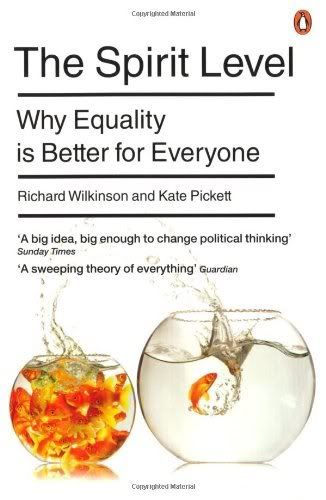
|
|
|
|
I guess this would fit with Economic History: Barlett and Steele's America: What Went Wrong? The two are Pulitzer prize winners who did a series of articles that touched on broad economic topics such as: wage declines, corporate bankruptcy, rises in health care costs, disappearing pension funds, and so forth. Rather than dumping a load of statistics on the reader, they instead convey personal stories from working class citizens and then delve into why said hardships materialized. It was written in the early 1990s, but it provides an invaluable look into todays present-day economic situation. You can get the book, or read it on-line. They also look to be working on a new series that will compare what they wrote then with what is going on now. On Islam, I read this for a course in college: A History of Islamic Societies. Its real dense, but it gives a good overview that spans up to the contemporary era.
|
|
|
|
kik2dagroin posted:
In that vein, the first two volumes of The Venture of Islam are both great accounts of Islamic history. The third one was compiled after his death and doesn't maintain that level of quality, unfortunately. Hourani's A History of the Arab Peoples is another classic that touches upon Islamic history.
|
|
|
|
Naomi Klein's other book, No Logo should probably be up there. The Two Income Trap by Elisabeth Warren is probably also a useful read, though you can get a lot of it from lectures on Youtube.
|
|
|
|

|
| # ? Apr 23, 2024 22:34 |
|
http://www.amazon.com/Abolition-Man-C-S-Lewis/dp/0060652942/ref=sr_1_1?s=books&ie=UTF8&qid=1307122337&sr=1-1 C.S. Lewis's The Abolition of Man purports to be a book specifically about public education, but its central concerns are broadly political, religious, and philosophical. In the best of the book's three essays, "Men Without Chests," Lewis trains his laser-sharp wit on a mid- century English high school text, considering the ramifications of teaching British students to believe in idle relativism, and to reject "the doctrine of objective value, the belief that certain attitudes are really true, and others really false, to the kind of thing the universe is and the kinds of things we are." Lewis calls this doctrine the "Tao," and he spends much of the book explaining why society needs a sense of objective values. The Abolition of Man speaks with astonishing freshness to contemporary debates about morality; and even if Lewis seems a bit too cranky and privileged for his arguments to be swallowed whole, at least his articulation of values seems less ego-driven, and therefore is more useful, than that of current writers such as Bill Bennett and James Dobson. Basically a tract against all things post-modern. http://www.amazon.com/Hedgehog-Fox-Essay-Tolstoys-History/dp/1566630193 My favorite thing ever written by Isaiah Berlin. "Easy"/quick read that profoundly changes the way one perceives the world. On India: Reinventing India http://www.amazon.com/Reinventing-India-Liberalization-Nationalism-Democracy/dp/0745620779 And for the sake of fairness. Liberal Fascism!: http://www.amazon.com/Liberal-Fascism-American-Mussolini-Politics/dp/0385511841 gabushenko fucked around with this message at 18:40 on Jun 3, 2011 |
|
|








